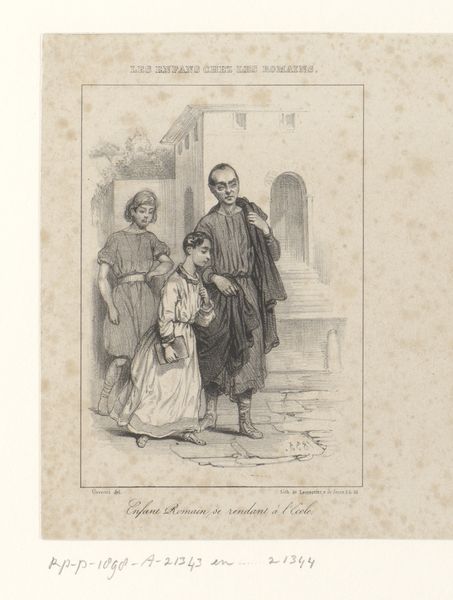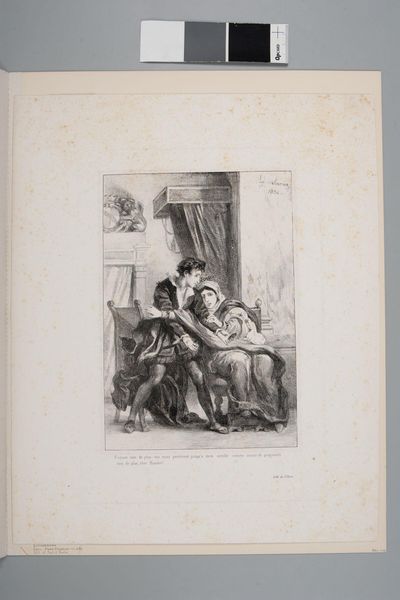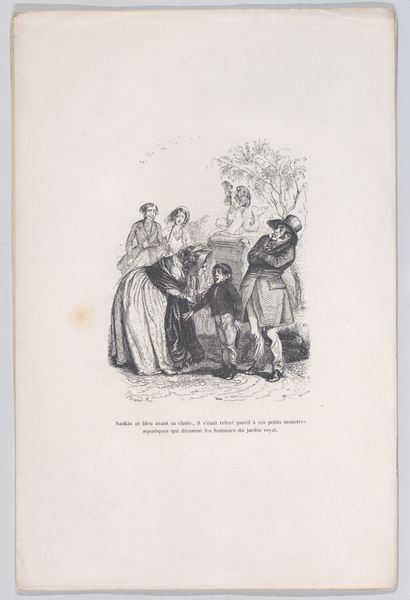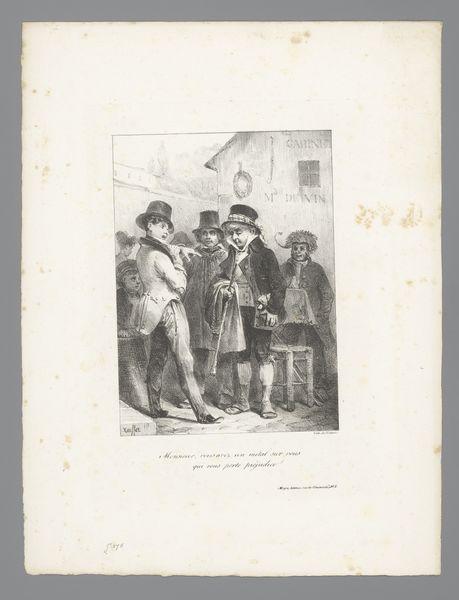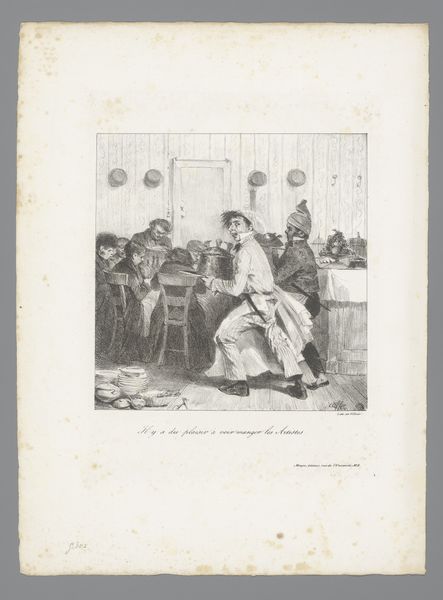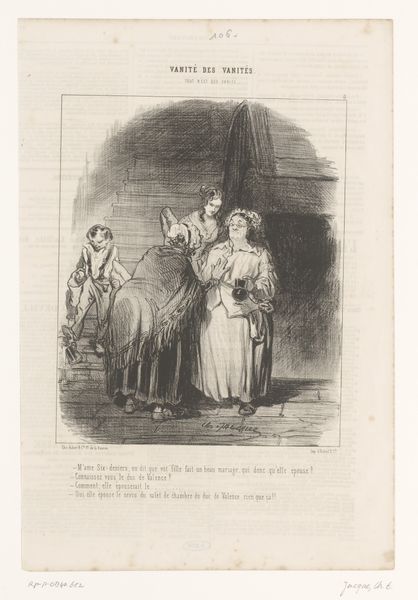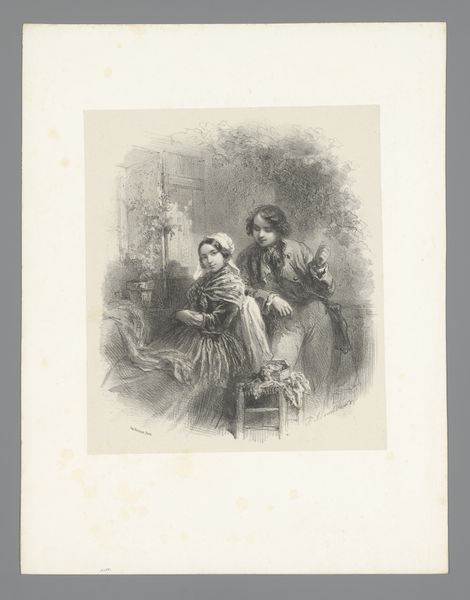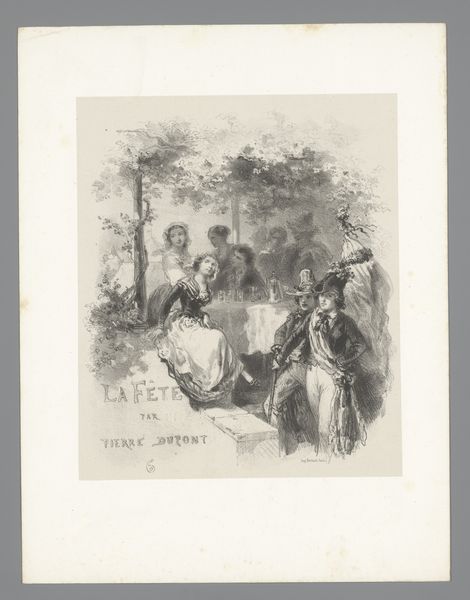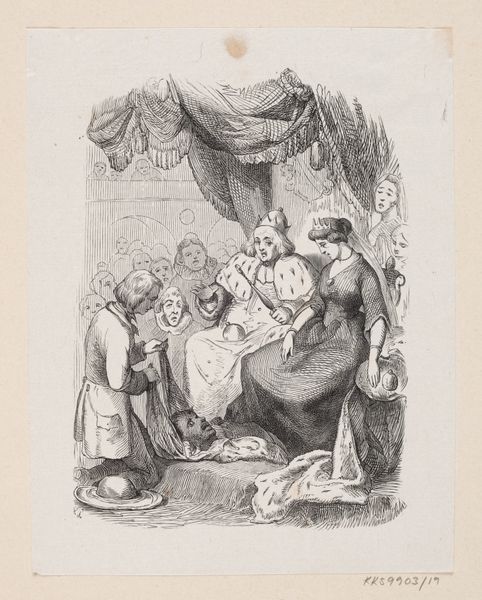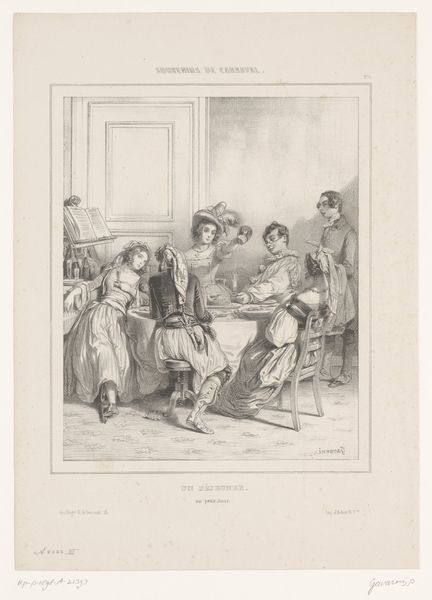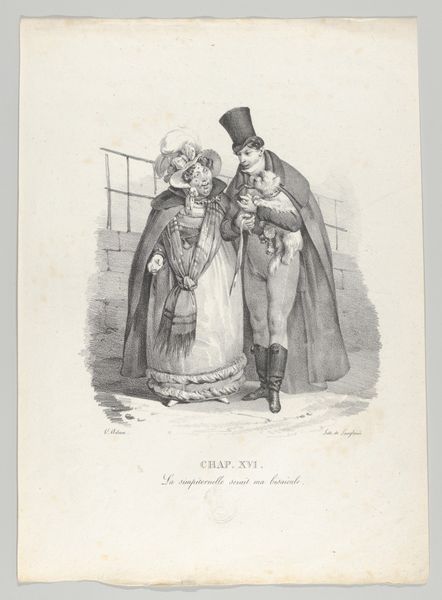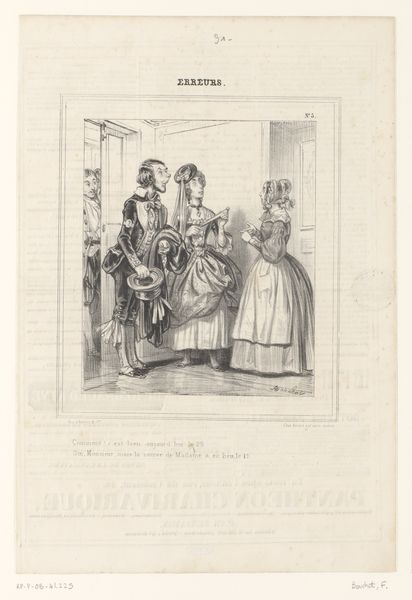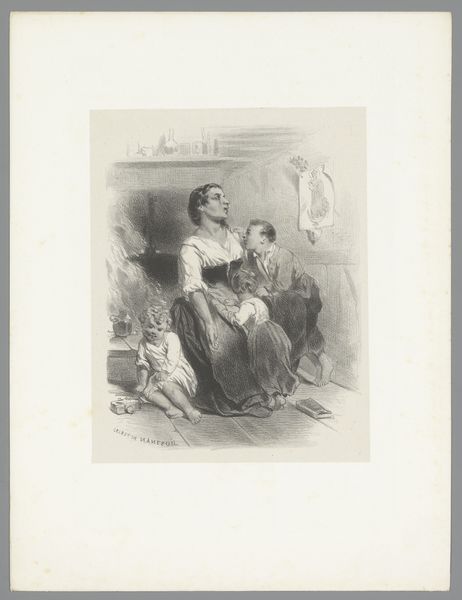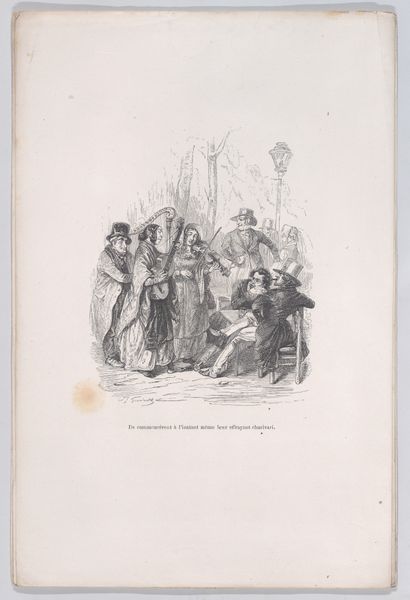
drawing, print, etching, paper, pencil
#
portrait
#
drawing
#
narrative-art
# print
#
etching
#
paper
#
child
#
romanticism
#
pencil
#
genre-painting
Dimensions: height 257 mm, width 199 mm
Copyright: Rijks Museum: Open Domain
Editor: Here we have "Vrouw en twee kinderen bij marktkoopvrouw," or "Woman and two children with a market vendor," an 1827 etching by Auguste Raffet. It’s quite a detailed street scene, capturing this interesting exchange between social classes. How do you interpret this work? Curator: Well, viewed through a historical lens, this print speaks volumes about the socio-economic dynamics of 19th-century urban life. Consider the Romantic era fascination with depicting everyday life but also highlighting social disparity. Raffet places the viewer within this interaction – observing the stark contrast between the well-dressed woman and the obviously less fortunate market vendor. Editor: It's almost like he’s staging the scene…drawing our eye to the disparities, like you said. Curator: Exactly. Think about the burgeoning print culture at this time. These images weren't just art; they were a form of social commentary distributed widely. How does that change your understanding? Editor: That completely shifts it! It’s not just observation but an intentional act of exposing or commenting on the inequality that's already present. And the print form made that message all the more public. Curator: Precisely! Raffet, through this readily accessible medium, engages the public in a dialogue about poverty, charity, and the rapidly changing social fabric of his time. It’s a political statement, really, veiled within a genre scene. Editor: It’s amazing to realize that something that seems so simple on the surface can carry such complex ideas about its historical context! I won't see etchings the same way again. Curator: And that's the beauty of art history. The art is in conversation with the conditions of its own production, shaping, and reflecting its moment. Always.
Comments
No comments
Be the first to comment and join the conversation on the ultimate creative platform.
